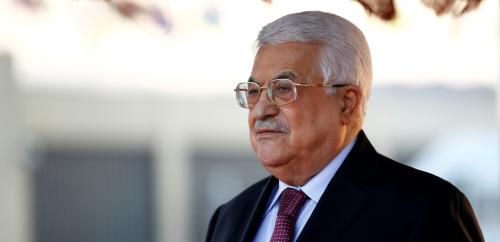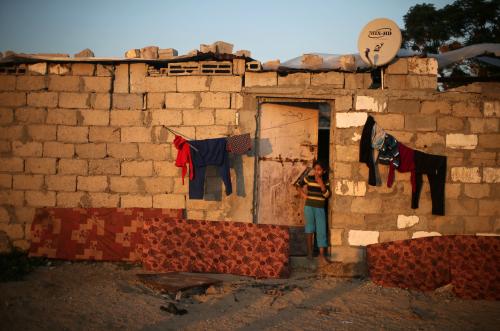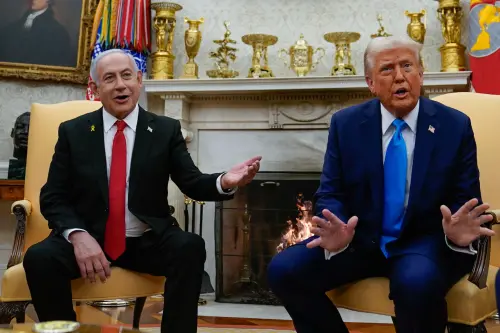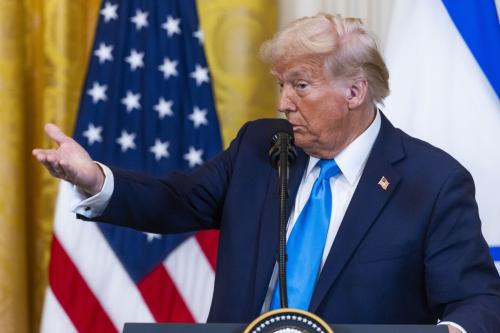For those Democrats and progressives determined to fight President Trump at every move, I have some bad news for you. Or at least I’d ask you to reconsider. The Trump administration’s game plan for the West Bank makes eminent sense—at least in the very short term and in the economic sphere. Long-term issues are another matter entirely, and I’ll save that for a separate article.
As President Trump visits Israel and the West Bank, Monday’s White House press release on steps to which Israel has agreed to improve Palestinian access to land in the West Bank has taken a page out of the playbook of what we in the Obama administration sought to accomplish. Indeed, it almost feels like the Trump administration actually reviewed one of my recent pieces calling for just these kinds of initial steps.
Two elements in particular hold promise—especially if Trump, as he writes in “The Art of the Deal,” “thinks big.” First, an Israeli commitment to rezoning land in parts of the 60 percent of the West Bank it fully controls (called “Area C”) for Palestinian use for housing, agriculture, and industry could in fact be meaningful—but only if they take place on a large scale. A few acres here or there would be meaningless, even farcical. But Israelis who are genuinely committed to a two-state solution should want this to take place on as big a scale as possible. Indeed, some have estimated that rezoning just a few percent of the West Bank for Palestinian use—carefully selected for economic value—could add a billion dollars a year to the Palestinian economy. Palestinians will be watching this closely. And with the White House publicly endorsing the move, the rest of us should too.
If this works well, the Trump administration could spend the coming years pushing for—and hopefully achieving—a dramatic expansion of Palestinian use of the West Bank. Imagine how the Palestinian economy could grow if Palestinians, who are burdened with a population density four times that of Israelis, managed not just 40 percent of the West Bank, but 50 percent or even 60 percent of it.
And second, expanding the hours that Israel allows Palestinians to exit/enter the West Bank to/from Jordan, which is their gateway to the world, will significantly expand Palestinian mobility and reduce frustration. Again, a key question is how much these hours are expanded. Palestinians will find an expansion of just a few hours to be a farcical as well. But if expanded to 24/7, Palestinians would feel far freer than they do today. Ideally, if Trump wants to go big, he could push for a return of a Palestinian face to these border crossings as was attempted during the late 1990s.
What the Trump administration has done here is welcome Israeli steps that are unilateral and are not tied to any U.S. or Palestinian action. In the first instance, these steps should improve the quality of life for the Palestinians and their economy, and in turn, one hopes, mitigate frustration on the ground thereby improving security for Israel. This is exactly the approach Trump should be taking and which I wrote about earlier this month.
The keys—and this can’t be stressed enough—are, one, that these steps can only represent progress, if implemented, and, two, that progress can only be meaningful if Trump “thinks big.” If they are small, or become just another broken promise, they will actually reduce the likelihood that Palestinians will ever believe in another attempt at peace and will do more harm than good.
Unfortunately, recent experience is that many such commitments get bogged down in the never-ending squabble that is the Israeli-Palestinian relationship of two peoples living in the same land. So we’ll have to wait and see if these realities take hold.
What will the commentariat think of all of this? Israel’s supporters might argue that Israel shouldn’t give away something for nothing. But I would counter that this gives Trump more leverage to call for unilateral steps from the Palestinians—including a crisper and more consistent rhetoric against incitement, which Israel wants—but is also in the Palestinian interest as it removes a stated Israeli obstacle to a final status agreement.
Conversely, Palestine’s supporters might argue that such an approach won’t bring us any closer to real peace, and that the number of Israeli settlers in the West Bank increased by 100,000 during the past decade. Here I would counter that in a situation where per capita GDP in Israel is 10 times higher than in the West Bank and Gaza, any and every step that better allows the Palestinian people to better reach their human and economic potential, and expand their freedom, not only can and should be taken. In fact, it is desperately needed.
The Trump administration no doubt will want to swing for the fences to conclude a final peace deal where others have failed. But even if they don’t succeed, if they both “think big” and have the persistence and the good fortune to get these ideas implemented, and do so on a large scale, they will have made a significant contribution to the lives of Palestinians and Israelis—and ultimately, to peace. Although the odds are not in their favor, we should all—even partisan Democrats—wish the Trump administration the greatest success in at least this regard.
The Brookings Institution is committed to quality, independence, and impact.
We are supported by a diverse array of funders. In line with our values and policies, each Brookings publication represents the sole views of its author(s).











Commentary
How Trump’s “think big” mantra could help advance Israeli-Palestinian peace
May 23, 2017